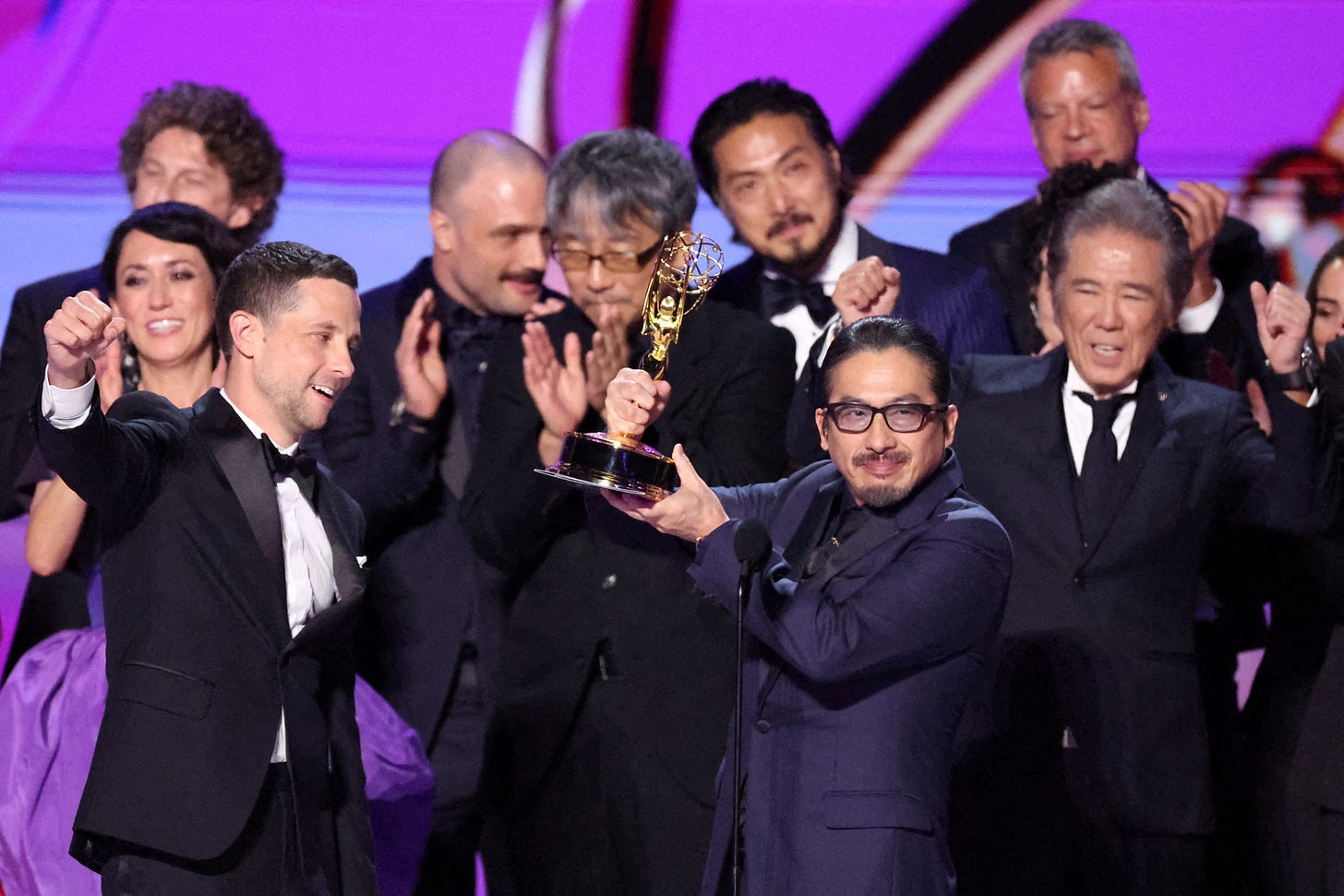The Emmys Actually Did Something Cool, For Once
An emotional "Shōgun" category sweep, an impassioned speech by John Leguizamo and a series of historical wins made the most diverse night in Emmys history stand out from the rest — for the most part.

In what was a banner year for diversity at television’s most historic ceremony, the 76th Annual Emmy Awards showed that the Television Academy might actually be able to practice what they preach. Though series celebrating 50-year milestones like “Happy Days” and “Saturday Night Live” were given ample screen time to revel in their prestige in impressively modeled recreations of their sets, those moments (and some egregiously trite father-son bits from Eugene and Dan Levy) didn’t hold a candle to the more emotionally-charged wins of the night, championed by heartfelt speeches from underdogs Liza Colón-Zayas, Anna Sawai and Hiroyuki Sanada, among others. Aside from a few notable snubs (nothing for “Abbott Elementary?” Really?), this year’s ceremony succeeded in its overtly belabored goal of recognizing diversity in both their nominations and winners — but the question is: will they actually make an effort to continue recognizing diverse talent and storytelling going forward? Or is it simply performative?
Of course, viewers were privy to much of the usual award show shlock, with hamfisted pop culture references (including some Sabrina Carpenter “Hot Ones” shade) and mentions to childless cat ladies. The Levy duo swung and missed more than they hit it out of the park, but managed a few base hits here and there. Throw in a lackluster “In Memoriam” performance from Jelly Roll transitioning into a Jimmy Kimmel bad joke jumpscare and you’ve got yourself a best hits compilation for the standard-fare award show broadcast.
But interspersed with the expected nostalgia-bait of cast reunions and Remember this show? segments were some genuinely fun and surprising moments, like when Diego Luna and Gael García Bernal presented the Emmy for Outstanding Directing of a Limited or Anthology Series or Movie entirely in spanish. Heartstrings tugged during Greg Berlanti’s acceptance of the Governors Award. Ebon Moss-Bachrach’s phoned-in performance during a particularly flagrant Johnnie Walker sponsorship tie-in made for some delicious irony following his win for Best Supporting Actor in a Comedy Series.
In one of the highlights of the night, a loquacious John Leguizamo got political when he began a lengthy introductory speech for Television Academy Board of Governors chair Cris Abrego by referring to himself as a DEI hire — a not-so-subtle jab at former President Donald Trump’s divisive rhetoric — and spoke to the experience of people of color within the television industry. He expressed his frustration at growing up with the portrayal of Latinx people on television being pigeonholed to drug dealers and racist caricatures like Speedy Gonzales before reiterating his need to speak up about representation. “That’s how we saw ourselves because that’s all we saw of ourselves,” he emphasized.
It was nice to see then that he spotlighted the ceremony’s landmark night in diversity by shouting out nominees like latinas Colón-Zayas and Sofía Vergara, Indigenous women Kali Reis and Lily Gladstone as well as Nava Mau, the first transgender person nominated for an acting Emmy since Laverne Cox in 2014. And it was a nice touch to send a slight at FX on Hulu’s Emmy-darling “The Bear” for focusing on “white people obsessing over Michelin stars” — a comment which even earned an encouraging head nod from Ayo Edebiri.
But what was most encouraging were the actual wins — evidence that these were not just words from the Academy, but actual, tangible examples of progress being made. Who would have thought that “Shōgun,” a fully-subtitled Japanese period piece would sweep three of the biggest categories of the night? Who would have thought Colón-Zayas would win Outstanding Supporting Actress in a Comedy Series instead of Meryl Streep or Carol Burnett? And what about Lamorne Morris of “New Girl” fame winning over Robert Downey Jr. in a category for a dramatic role?
It’s in moments like these that some semblance of real progress can be seen, heard and felt. It’s these moments that can make an awards show allowing Hollywood elites to pat themselves on the back for three hours on a Sunday night actually mean something in the greater context of our society.
In the translation of what’s on screen to the viewer's experience — in the words of “Shōgun” co-creator Justin Marks — it’s not about what is lost, but what is found. We see ourselves in what we see on screen, so why can’t we see more of that?

